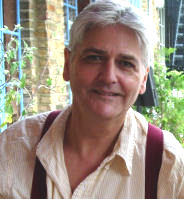Cognitive Mapping and Radio Drama by Alan Beck - Consciousness, Literature and the Arts, Volume 1 Number 2, July 2000
also at http://blackboard.lincoln.ac.uk/bbcswebdav/users/dmeyerdinkgrafe/archive/cog.html
SECTION 2
2.1 Previous discussions
These aspects of reception theory - audience, fictional plot and perceiver's competence - are currently much discussed. In film studies especially, there have been approaches through narratology (Bamberg, 1987, Branigan, 1992, xi) and through the 'interdisciplinary field known as "cognitive science"' (Branigan, 1992, xii, Carroll in Bordwell, 1996 48).
Branigan's study of audience schemata and levels of narration is perhaps the best known (Allen and Smith, 1997, 3, 40). I find Forrester's new work on 'sound as event' and sound as auditory geographies particularly convincing and summative (Forrester, 2000 - click here to read this).
At the least, this article aims to rezone the ongoing debate on listener reception of radio. There have already been valuable and insightful discussions of radio as blind or invisible (an acutely and inventively expressed Shingler in Shingler and Wieringa, 1998, 74 contra the monumental work of Crisell, 1994, and Crook, 1999, 53-61, who offers a refreshing range of new approaches). I have contributed too on this debate (Beck, 1999b).
Other relevant points are: listeners as playing a movie within their minds (Ferrington 1993, in the section 'Theatre of the Mind'), radio drama as the 'visual track' (Felton in Langham, Felton, MacNeice and Baker-Smith, 1949, 7) and 'the darkness of the listener's skull' (Gray in Lewis 1981, 49). I will refer below to my approach to radio drama as affording an 'aural paradise' (Beck, 1997b). But there should be concern over the reliance on some few traditional metaphors in radio reception theory and by a narrowing in debate.
2.2 Technical terms
Already some technical terms have been used and nuanced by me in particular ways. A Glossary is supplied below. In any discussion of radio theory and indeed, of sound, a warning has to be given that our working vocabulary is not sufficiently precise and varied.
Lewis and Booth, 1989, xiii comment, 'radio practice and policy lack a language for critical reflection and analysis', and Altman calls for a 'retooling process' to deal with the film soundtrack and sound generally (Altman, 1992, 15). Forrester comments on the lack of conceptually rich theories in psychology here (Forrester, 2000, 4.1).
TO - SECTION 3 - Cognitive mapping

Academic material on this site is  Alan Beck
is licensed under a Creative Commons Attribution-Non-Commercial-Share
Alike 2.0 UK: England & Wales License.
Alan Beck
is licensed under a Creative Commons Attribution-Non-Commercial-Share
Alike 2.0 UK: England & Wales License.
See more of Alan Beck's work.
To the WELCOME PAGE for Alan Beck's site.
Learn about radio drama on this site along with my book - Beck, Alan, Radio Acting, London: A & C Black ISBN 0-7136-4631-4
Available on Amazon. CLICK HERE.
Any opinions expressed in this site are the personal opinions of the owner of the site. IF YOU HAVE COMMENTS, PLEASE EMAIL TO : [email protected]
